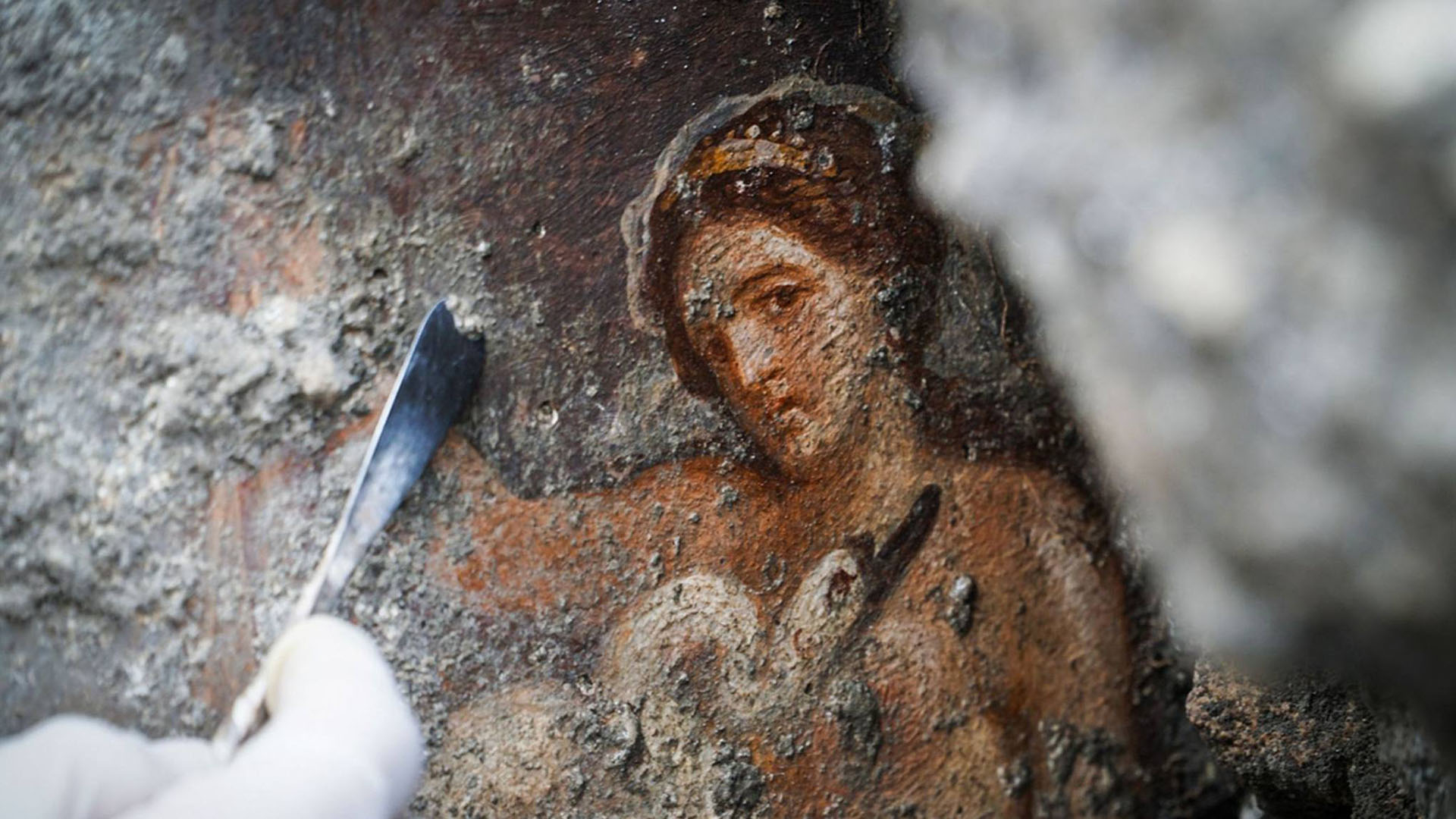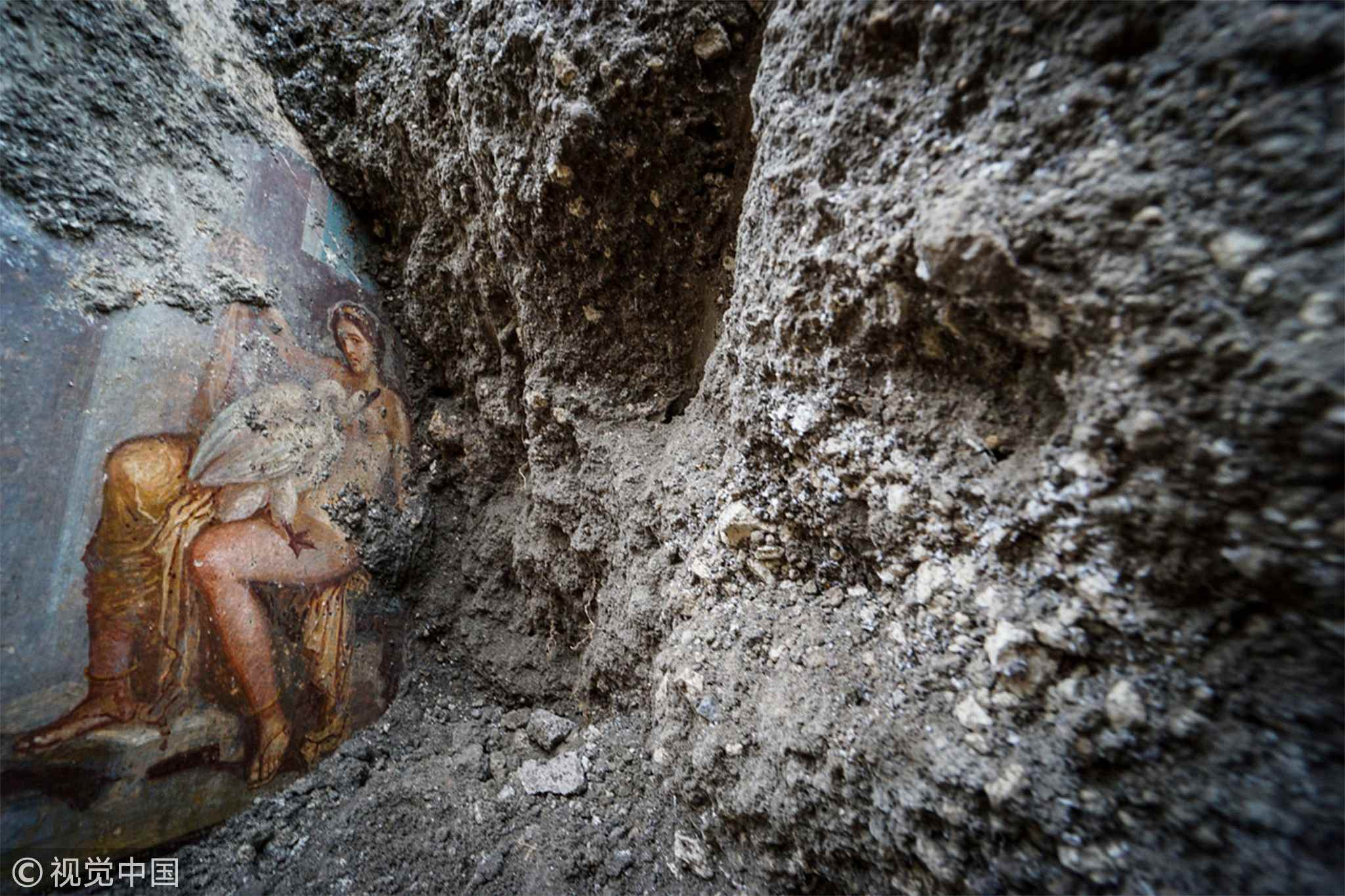
Culture
21:00, 21-Nov-2018
Sensual fresco discovered in ancient Pompeii bedroom
Updated
20:13, 24-Nov-2018
By Zhang Mengyuan
01:14

An ancient fresco depicting a sensual scene from the Greek myth "Leda and the Swan" has been uncovered at the Pompeii archeological site in central Italy on November 16.
The artwork portrays the Greek god Zeus - or Jupiter in Roman mythology - taking the form of a swan and seducing the Spartan Queen Leda, the wife of King Tyndareus.
Pictures from the excavation show the vivid color of the painting is still visible, some 2,000 years after it was buried under a thick layer of volcanic ash. In the painting, Queen Leda is portrayed sitting on a chair, draped in a golden cloak with the swan god in her lap.

The fresco represents a sensual Greek mythological princess Leda and a swan on her lap, directly looking at whoever watches it. The fresco was discovered at an archeological site in the ancient city of Pompeii, Italy, on November 16, 2018. /VCG Photo
The fresco represents a sensual Greek mythological princess Leda and a swan on her lap, directly looking at whoever watches it. The fresco was discovered at an archeological site in the ancient city of Pompeii, Italy, on November 16, 2018. /VCG Photo
"This fresco distinguishes itself for its pronounced sensuality. The model inspiring this is probably an ancient one, the Timoteo statue from the 4th century that represents Leda receiving in her lap the swan, and who protects it with her mantle," said Massimo Osanna, director of Pompeii Archeological park.
"In fact, even our illustration has an arm raised. What is interesting is that Leda is looking at the spectator with a sensuality that's absolutely pronounced. Evidently, the Greek myth is used here in context, a love myth with explicit sensuality in a bedroom where obviously on top of sleeping there could be also other activities," Osanna added.
The fresco was discovered last Friday during ongoing work to consolidate the ancient city's structures after rains and wear-and-tear in past years caused some ruins to collapse. The flourishing ancient Roman city was buried by the volcanic eruption of Mount Vesuvius in 79 A.D.

SITEMAP
Copyright © 2018 CGTN. Beijing ICP prepared NO.16065310-3
Copyright © 2018 CGTN. Beijing ICP prepared NO.16065310-3